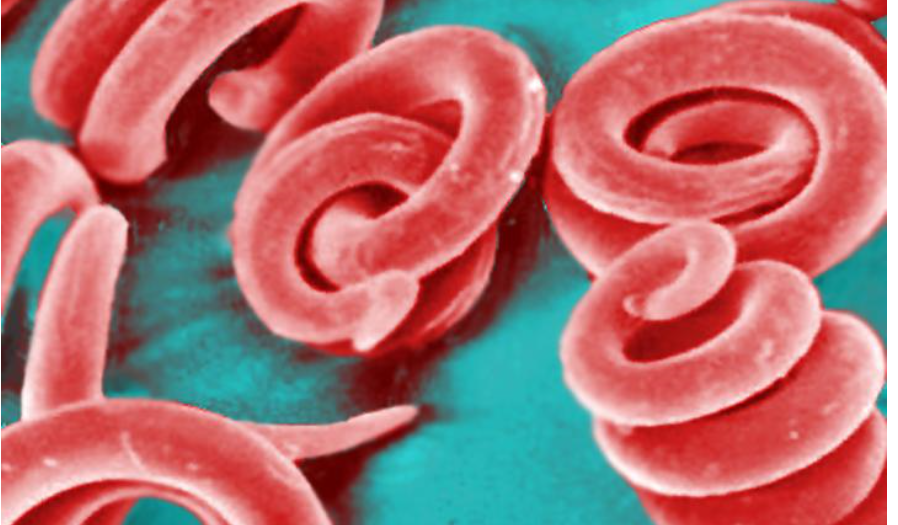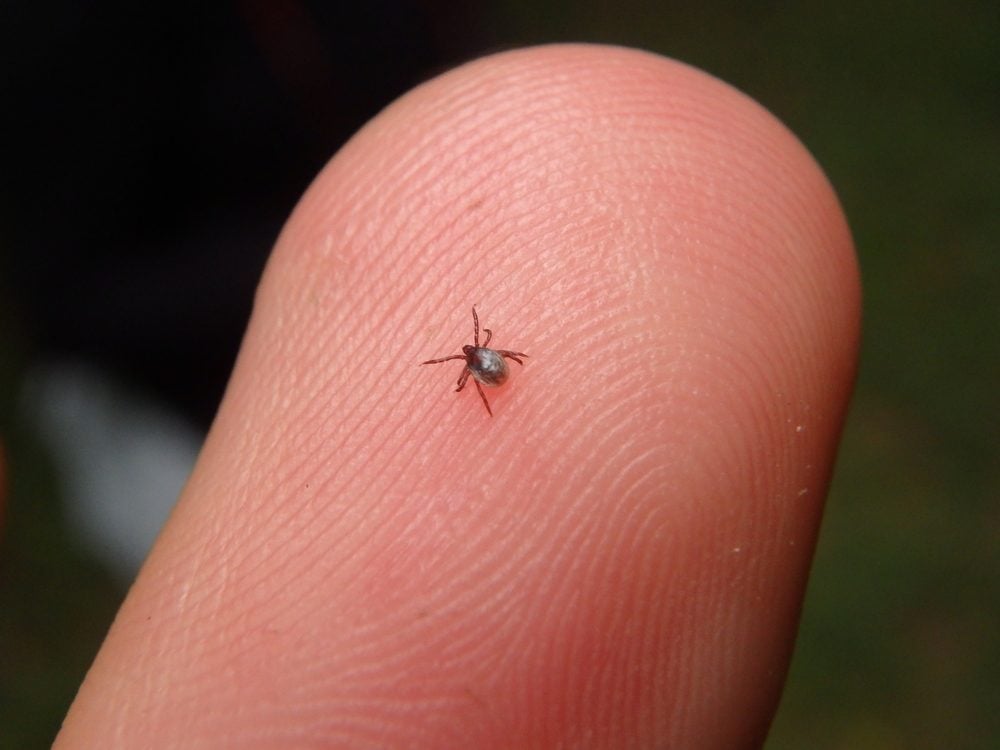What's Eating You: 12 Common Intestinal Parasites - Medscape
What's Eating You: 12 Common Intestinal Parasites - Medscape |
- What's Eating You: 12 Common Intestinal Parasites - Medscape
- Researchers find immune responses that have key role in controlling trichinosis - Food Safety News
- Parasite Symptoms: Silent Signs You Have a Parasite - Reader's Digest
| What's Eating You: 12 Common Intestinal Parasites - Medscape Posted: 20 Nov 2018 12:00 AM PST Microsporidia An electron micrograph of Encephalitozoon hellem spores rupturing from a eukaryotic cell is shown above. Microsporidia are obligate, intracellular, spore-forming parasites.[1,23] The phylum Microsporidia contains over 1200 fungal species, a large number of which cause infection in humans. Two of the most important species are Encephalitozoon hellem and E intestinalis.[24] Most infections are found in persons infected with human immunodeficiency virus (HIV), organ transplant recipients, people with diabetes, children, and the elderly.[24] Microsporidiosis occurs through fecal-oral ingestion or inhalation of microsporidial spores via human-to-human or waterborne transmission. Patients with intestinal microsporidiosis may develop chronic, nonbloody diarrhea; weight loss; abdominal pain; nausea; vomiting; and malnourishment.[25] With dissemination, cholecystitis and renal failure, as well as infections of the muscles, brain, and respiratory tract, may occur. In rare cases, patients with HIV/acquired immunodeficiency syndrome (AIDS) may develop microsporidial keratoconjunctivitis.[26] The diagnosis is made via stool microscopy, but this does not allow species identification.[23] Cytologic and histologic examination may also be helpful; additionally, immunofluorescence assays (IFA) and PCR assays are available. Typically, treatment with albendazole for 2-4 weeks is effective for most ocular,[26] intestinal, and disseminated microsporidiosis.[23] |
| Researchers find immune responses that have key role in controlling trichinosis - Food Safety News Posted: 21 Apr 2019 09:12 PM PDT  Scientists from Lancaster University have discovered immune responses that are important in eliminating the causative agent of Trichinosis. Researchers from the university in the United Kingdom found immune responses that prevent fungal infections also help eliminate Trichinella spiralis. The work has been published in the journal PLOS Pathogens. They hope findings will help to design new treatments for people who suffer from intestinal parasitic infections and may inform other intestinal diseases involving altered muscle function. People acquire trichinellosis by eating raw or undercooked meat infected with the Trichinella parasite such as wild game meat or pork. Trichinella spiralis infects pigs, horses, rats and other animals. Contaminated meat contains "nurse cells" of the parasite. Once in the stomach these cells hatch, releasing infective larvae which then bury themselves within the lining of the small intestine. Previously, immune responses to expel the parasite have been shown to rely on white blood cells called T-helper 2 cells, specialized for eliminating gastrointestinal parasites. However, scientists discovered that following this T-helper 2 reaction, a second T-helper 17 response, previously shown to be specialized for eliminating fungal infections and certain bacterial infections occurred. One protein that can be key in controlling immune responses is transforming growth factor beta. With Professors Mark Travis and Richard Grencis from the University of Manchester, the team identified how the T-helper 17 cells arose and that they were key in maintaining intestinal muscle contractions needed to flush out the worms. Mice were infected with 300 Trichinella spiralis larvae and followed throughout the course of infection. Findings showed mice lacking the ability to activate a key signaling molecule important in producing T-helper 17 cells have a reduced ability to expel the parasite. Researchers saw a delayed transit time in the small intestine hinting at alterations in muscle contraction. In isolating the small intestine they demonstrated that a molecule produced from T-helper 17 cells, termed IL-17, could increase intestinal contraction and restoring levels of IL-17 in the mice rescued their ability to expel the parasite. It is estimated there are 10,000 human trichinellosis infections per year worldwide. Symptoms depend on stage of the infection. Initially when larvae or adults are in the intestines there may be abdominal discomfort with nausea, diarrhea, vomiting, fatigue and fever, according to the World Organization for Animal Health (OIE). As larvae migrate into the muscles they may cause severe pain, headaches, fevers, chills, cough, eye swelling, aching joints and muscle pains, itchy skin, rash, and diarrhea or constipation. Severity of the disease is related to the number of larvae ingested, and fatalities can occur with high doses. John Worthington, from the department of biomedical and life science at Lancaster, said they were surprised by what was found. "Normally, these immune responses are thought of as acting quite distinctly depending on what type of infection you may have. It's well established that the T-helper 2 response is beneficial during gastrointestinal worm infections, so traditionally any other response would be thought of as hindering worm expulsion. So, it was quite surprising to see that this late acting T-helper 17 response was actually beneficial to the mouse's ability to resolve an infection and get rid of the worm," Worthington said. He also said the study provides insights into how the immune system interacts with muscle contraction during intestinal inflammation. "Although the occurrence of this infection is very rare in the developed world, we hope it will help us to design new treatments for the many millions of people who suffer from intestinal parasitic infections worldwide and may even inform other intestinal diseases involving altered muscle function." (To sign up for a free subscription to Food Safety News, click here.) |
| Parasite Symptoms: Silent Signs You Have a Parasite - Reader's Digest Posted: 17 May 2018 01:26 PM PDT  Conditions
You may think they're only a problem in poor or developing countries, but parasites affect millions of people in the United States every year.What is a parasite?Before you go self-diagnosing your parasite symptoms, it's important to understand what a parasite is. "A parasite is an organism that lives on or in a host organism and gets its food from or at the expense of its host," according to the CDC. There are three classes of parasites: Protozoa, which are tiny, one-celled organisms that typically live in the intestines, blood, or tissue; helminths, which are parasitic worms such as tapeworms, roundworms, and thorny-headed worms; and ectoparasites, which are ticks, fleas, lice, and mites that attach to or burrow into the skin. Parasites can cause disease and even death, but fortunately, if caught early, the infections can usually be treated with medication. Here are some silent signs and parasite symptoms that could mean you are hosting one of these tiny invaders, including the parasite that millions of people in the United States have and don't know it! You ingested (or swam in) some questionable waterWhether you were traveling abroad and drank from the tap or went to the lake around the block and splashed around for a bit, ingesting contaminated water is one of the most common causes of parasites, according to Daliah Wachs, MD, a board-certified family physician in Las Vegas. These are the 35 health secrets your body is trying to tell you. You enjoy a rare steakTend to prefer your foods on the rare side? It might not be the best option if you're looking to avoid a parasite. "Ingesting raw or undercooked beef or pork can lead to [infection by] the Taenia type of intestinal tapeworms," says Dana Hawkinson of the University of Kansas Health System. "Eating certain raw fish can lead to [infection by] diphyllobothrium, [a type] of intestinal tapeworm. Additionally, ingestion of contaminated food or water can lead to an ascaris infection." Ascaris intestinal roundworms can grow up to 35 centimeters in length and lead to intestinal blockage, so you definitely want to avoid them. |
| You are subscribed to email updates from "What are the symptoms of having worms in stomach" - Google News. To stop receiving these emails, you may unsubscribe now. | Email delivery powered by Google |
| Google, 1600 Amphitheatre Parkway, Mountain View, CA 94043, United States | |


Comments
Post a Comment